Iran Impounds Smuggled Rare Antiques At Turkish Border
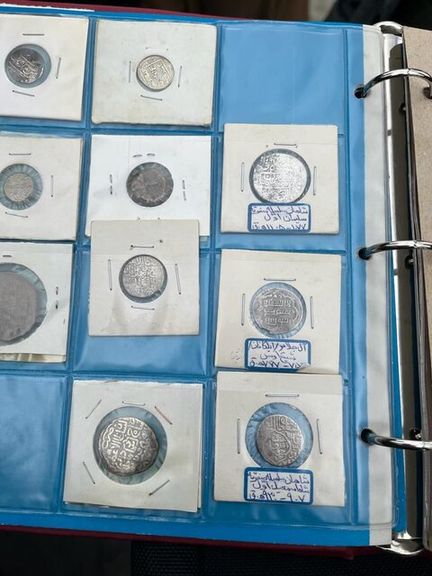
Iran has seized a cargo of antique goods and ancient artifacts smugglers planned to take out through Turkey.

Iran has seized a cargo of antique goods and ancient artifacts smugglers planned to take out through Turkey.
Rouhollah Latifi, spokesperson for the Customs Administration office, said Friday that 570 items confiscated included old coins and books.
The shipment was found in a truck loaded with second-hand home furniture in transit to Canada at the Bazargan border crossing, West Azarbaijan province, the spokesman said. The coins were worth several billion rials, Latifi added.
Within the haul were 18 bronze pieces dating from the first millennium BC, antique daggers, seven glass chandeliers, 322 silver coins, a one-dollar coin minted in 1845, some Qajar-era (1795-1925) plates, and a handwritten gold-gilded Qur'an.
Under Iranian law, such artifacts are deemed part of "national heritage" and illegal to export unless expressly authorized by the relevant authorities. Smuggling antiques can lead to years of imprisonment and fine equal to twice the value of the smuggled items.
Iranian items legitimately for sale in western auction houses or by dealers – including carpets, manuscripts, painting, ceramics, and woodcrafts – can fetch from a few hundred dollars to hundreds of thousands, or more. London’s Victoria and Albert Museum bought the 16th-century ‘Ardabil carpet’ in 1893 for £2,000.
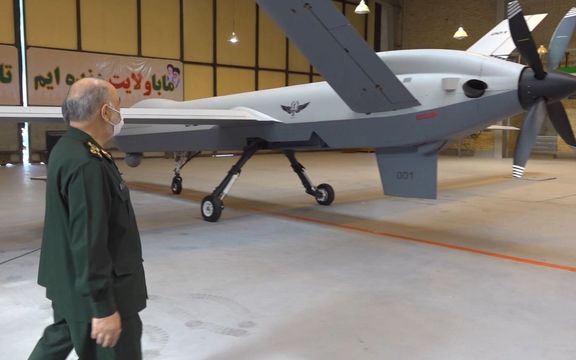
A drone flown by Lebanese militant group Hezbollah crossed into northern Israel on Friday, triggering air defenses and the scrambling of fighter jets.
The drone apparently returned to Lebanon but it is not clear how long it lingered in Israeli airspace (video).
Iran-backed Hezbollah, which fought a month-long war against Israel on the Lebanon border in 2006, said Friday's flight was a 40-minute reconnaissance mission. Earlier this week, it said it had started producing its own drones in Lebanon.
Hours later and roughly 100 km to the north, a thundering roar was heard in the Lebanese capital Beirut caused by Israeli planes passing in the lowest overflight in years, according to many videos recorded by residents.
On Wednesday, Hezbollah chief Hassan Nasrallah said in a televised speech that his group has the ability to convert rockets into precision missiles with the help of "experts from the Islamic Republic."
Israel's military said Hezbollah's radio-controlled drone had set off air raid sirens in the Galilee region of northern Israel warning residents to take cover.
"Aerial defense systems identified and tracked the threat along with helicopters and fighter jets that were dispatched," it said, adding that its Iron Dome defense system had tried to intercept the drone but it made it back.
On Thursday, Israel said it had downed a drone that belonged to Hezbollah after it crossed into Israeli air space.
With reporting by Reuters
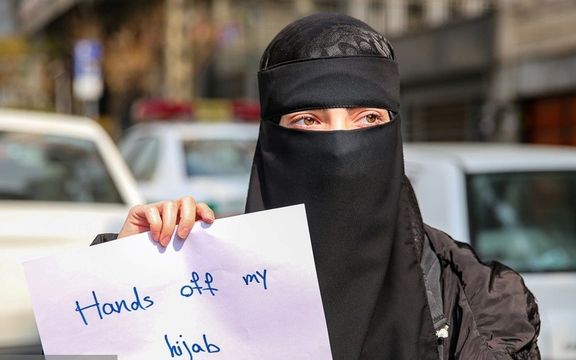
Tens of Iranian students staged a protest outside the Indian embassy in Tehran to protest a ban on hijab in colleges in the southern Indian state of Karnataka.
The students also issued a statement calling on the Iranian authorities to take measures against the new law by the Indian government.
The Bharatiya Janata Party (BJP), which runs the governments in Karnataka as well as control the national government, has for decades campaigned for the application of a Uniform Civil Code (UCC), which some minorities believe would be tantamount to the imposition of Hindu laws.
The Iranian students who participated in the state-sponsored rally described the new hijab restrictions as discriminatory against Muslims and called it a violation of the basic human right to freedom of clothing. However, it is decades that the Islamic Republic has imposed its compulsory hijab rules and anyone who dares to protest will face persecution or heavy-handed jail terms.
Choosing which clothes to wear is an important part of expression as confirmed under Article 19 of the Universal Declaration of Human Rights.
More than four decades after the Islamic Revolution of 1979, there is still much resistance to the prescribed standards of hijab promoted by the state, which many women refuse to accept even at the cost of being arrested, fined or even lashed.
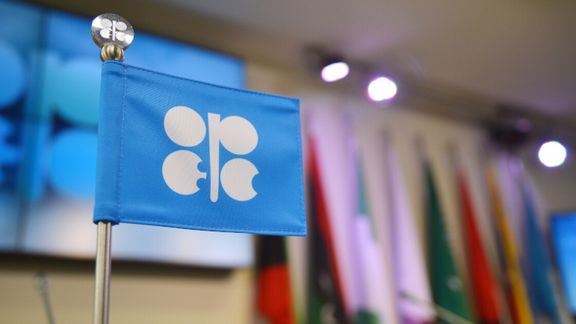
OPEC and its oil exporting allies will integrate Iran into their oil supply accord should a nuclear agreement be reached in Vienna and US sanctions lifted.
Quoting sources close to the group the report said OPEC+ seeks to avoid market share competition that could hit prices.
A successful outcome to the talks will lift United States’ sanctions on Iran's exports, according to the International Energy Agency, potentially bringing 1.3 million barrels per day (bpd) of Iranian oil back into the market. That could ease tight global supply and take some heat out of a rally that has taken benchmark prices to just a few dollars short of $100 a barrel.
Iran has been under full US oil sanctions since May 2019, and it was under partial sanctions from mid-2018. Its finances and the economy have suffered gravely as a result, and it is eager to sell as much crude as possible once sanctions are lifted.
The sanctions have also made Iran exempt from the existing export limit deal between the Organization of the Petroleum Exporting Countries and allies, known as OPEC+. While that exemption allows Iran to boost output, OPEC+ would eventually seek to bring Iran into the accord, sources said.
"It is very likely OPEC will adjust Iran into the deal, as there is no other option," an OPEC+ source told Reuters, who added that an agreement on reviving the nuclear accord looked close.
A source familiar with Iranian thinking said Iran would first seek to restore its lost output, but would likely, after talks with OPEC+, agree to a quota. Iran is one of the five founding members of OPEC.
Iranian officials are trying to restore they market share with previous customers like South Korea, Japan and India. Contacts and talks have already begun to coordinate post-sanction shipments.
Iran is pumping about 2.5 million bpd, some 1.3 million bpd less than in 2018 when former US President Donald Trump withdrew the United States from the nuclear accord and re-imposed sanctions, drastically cutting Tehran's oil income.
"With the lifting of sanctions, Iran will increase its oil production according to its facilities, capabilities and interests, to compensate for its lost oil revenues," the source familiar with Iranian thinking said.
"In my opinion, OPEC+ will set a quota for Iran's oil production but will apply it gradually, and Iran will accept the quota with some bargaining to show its support for OPEC."
'OPTIMISTIC' ON IRAN ISSUE
OPEC Secretary General Mohammad Barkindo, asked if OPEC+ would work out a new supply agreement that included Iran, said the group's track record gave grounds for confidence.
"Having survived the last five years since the establishment of the historic partnership between OPEC and non-OPEC that helped us to navigate through two oil cycles, we have every reason to remain reasonably optimistic going forward," he told Reuters.
OPEC+ is gradually boosting oil output after making record cuts in 2020 when demand collapsed due to the pandemic. But it has failed to hit its target because some producers did not make the investment or do the maintenance needed on oilfields during the pandemic to keep those facilities ready to increase output quickly.
For the United States, it would make sense to lift the sanctions on Iran to help lower prices given the domestic pressure the administration of President Joe Biden is facing due to rising inflation. The United States may also be considering that any output from Iran would ease the impact on global oil markets of any conflict between Russia and the Ukraine, a source familiar with Russian oil thinking said.
"The US will surely lift the sanction from Iran as soon as they decide to put more pressure on Russia given the current tensions over Ukraine," the source said. "Iranian oil will cool oil prices."
Reporting by Reuters
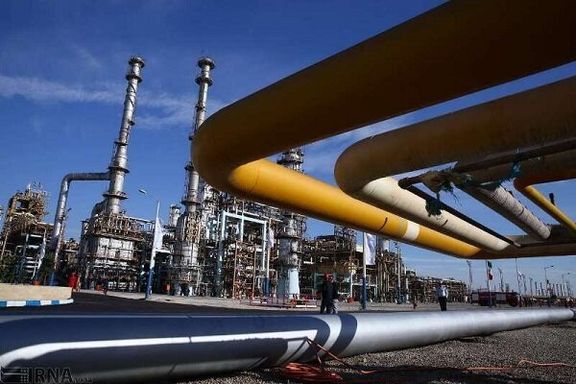
An oil refiner from India has started negotiations with the Islamic Republic to resume crude imports as soon as the nuclear deal is finalized.
Reuters cited an Indian refining source on Thursday that the Indian company is in talks with Iran for sourcing its oil, but the sources declined to be identified due to sensitivity of the matter.
India, which used to be Iran's No. 2 customer, halted oil imports in 2019 after former US President Donald Trump withdrew from the nuclear deal and re-imposed sanctions on Tehran's oil exports.
According to the unnamed source, New Delhi is waiting for more clarity on the nuclear deal, which apparently is close to tangible results.
A new deal can potentially pave the way for more oil supplies on global markets and soften prices about $5-10 a barrel, because Iran can contribute five percent to the world’s crude volume.
Earlier on Thursday, Japanese oil and energy corporation ENEOS announced its readiness to resume oil imports within two to three months of any revival of the 2015 Iran nuclear deal.
Tsutomu Sugimori, chairman of Japan’s largest refiner, said Thursday that ENEOS would not be able to resume Iranian imports immediately as it needed to set up insurance and arrange shipping. He called a two to three-month period a “possibility.”
Also, in preparation for the possible easing of US sanctions, Iran and South Korea, another major Iranian oil customer before 2018-19, opened detailed talks on freeing Tehran's money frozen by Korean banks fearful of punitive US measures.
as/ms
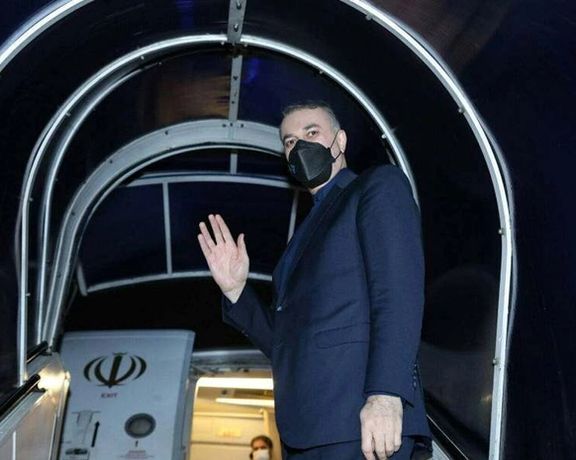
Iranian Foreign Minister Hossein Amir-Abdollahian left Tehran Friday morning for Germany to participate in the 58th Munich Security Conference (MSC).
Amir-Abdollahian is set to join many world leaders who have converged for the three-day event annual security gathering, known as "Davos for defense", which kicks off on Friday at the luxurious Bayerischer Hof hotel in Munich.
The weekend conference will be dominated by the Ukraine crisis, but the event serves as a platform for other global issues.
Roundtables on Saturday, the main day of events, will also address the fate of the Vienna talks to revive Iran’s nuclear deal with world powers and the fragile security situation in the Sahel.
Both issues have flared up this week with reports about the finalization of a new US-Iranian deal and the French withdrawal of troops from Mali after almost a decade fighting Islamist insurgents.
Over the weekend there will also be high-profile panels on cryptocurrency, climate change and the pandemic.
The chairman of the conference, Wolfgang Ischinger, has told reporters that he could not recall a time when there were "so many overlapping crises".
This is the first no-show by a Russian delegation in years, highlighting how much East-West relations have deteriorated.
The official agenda of the Iranian foreign minister is not announced but much of the action is likely to take place on the sidelines of the main stage.